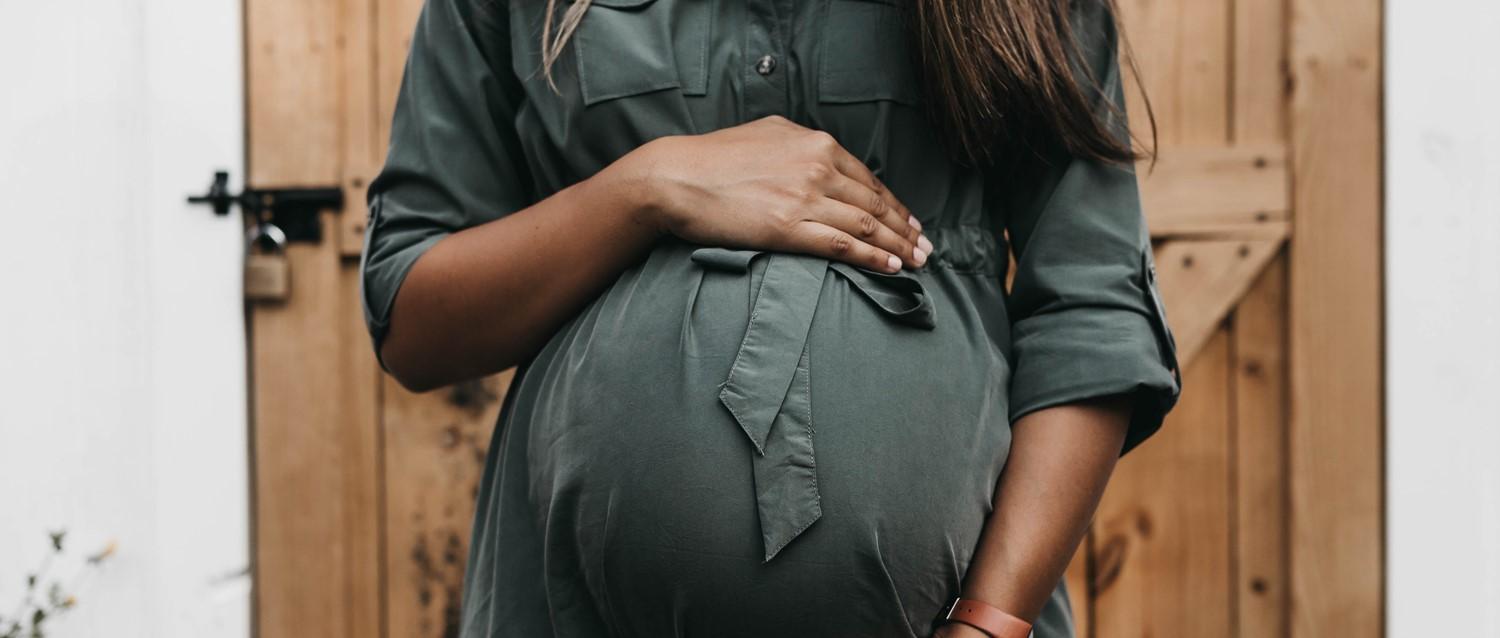
What to expect at your first ultrasound scan
Peer reviewed by Dr Sarah Jarvis MBE, FRCGPLast updated by Emily Jane BashforthLast updated 14 Nov 2021
Meets Patient’s editorial guidelines
- DownloadDownload
- Share
- Language
- Discussion
An ultrasound is a chance to check up on your baby and ensure they are healthy. It's a sneak peek, and getting that first glimpse of your little one can be really exciting for expectant parents. However, if you're heading for your first ultrasound with no idea what to expect, the experience can be daunting. So, let's put your mind at ease and answer all those niggly questions.
In this article:
Continue reading below
When would you usually have your first ultrasound?
Kate Richardson, managing director and specialist sonographer at The Birth Company, explains that the NHS offers all pregnant people their first routine ultrasound at around 12 weeks.
This is known as the dating scan, nuchal translucency scan, combined test or first trimester screening.
"Within this, you will be offered screening for the three most common chromosomal conditions: Down's syndrome, Edwards syndrome and Patau's syndrome. If you do not choose to have a screening for these conditions, you can still have an ultrasound scan," Richardson says.
"The sonographer will perform a transabdominal ultrasound scan. This means the ultrasound scan is performed across the abdomen. In some cases, it may be necessary to perform a transvaginal ultrasound scan, where a different-shaped probe is inserted a small way into the vagina. This is safe for the pregnancy and should not be uncomfortable."
Early pregnancy ultrasound scans can be performed from as early as six weeks of pregnancy. These scans are not offered routinely by the NHS, but they may be offered to those experiencing adverse pregnancy symptoms, such as pain or bleeding. Early scans might also be available to those with a history of miscarriage or ectopic pregnancy.
Early pregnancy scans can be accessed privately. Many expectant parents do opt for this if they became pregnant through IVF, or if there have been previous concerns.
For those wishing to confirm an early pregnancy, without specific concerns or history, Richardson recommends an early pregnancy scan between 7-11 weeks.
How can you prepare for your first ultrasound?
Luckily, there isn't much prep involved for an ultrasound, but here are Richardson's top tips:
Have a moderately full bladder to help position the womb into a more favourable position - however, try not to overfill, as this can cause discomfort.
Wear loose-fitting clothing - a flowy top and trousers make it easy for your lower abdomen to be exposed during a transabdominal scan.
Avoid wearing silks or anything that marks easily - sometimes the clear ultrasound gel can get on to your clothes.
Eat! You do not need to fast before a regular prenatal ultrasound.
Continue reading below
What can you expect to see at the first ultrasound?
Routine 12-week scan
The 12-week scan can be performed to assess the probability of chromosomal conditions and to diagnose certain major structural conditions.
Richardson says this scan confirms that the baby's heart is beating, and the number of babies such as twins or triplets.
"Your baby's head, brain, face, heart, stomach, bladder, hands and feet can be seen. We also look at the placenta, amniotic fluid and umbilical cord," she says.
The sonographer will also determine your estimated due date (EDD).
Richardson says that this scan can offer peace of mind and early reassurance. It can also determine the cause of any concerning symptoms, such as bleeding.
Early pregnancy scan (between 6-11 weeks)
As these scans are not offered routinely by the NHS, not everyone will have one. However, the early scan can indicate the size of the pregnancy gestation sac or the embryo/baby. Richardson says this confirms the number of weeks of pregnancy.
"These scans can also assess the presence of internal bleeding, fibroids or ovarian cysts, which may require further monitoring," she explains.
How long does an ultrasound take?
Early pregnancy scans take around 20 minutes. Nuchal translucency scans take 30-40 minutes since the baby is more developed and more checks and measurements can be performed.
Richardson describes the process, step by step.
What happens at an ultrasound scan?
The sonographer will introduce themself and gain consent from you to perform the ultrasound scan.
The sonographer will then ask you a few questions about yourself relating to your pregnancy.
You will be asked to lie on an ultrasound couch and loosen your clothing to allow the sonographer access to your lower tummy - the pregnancy sits quite low in the pelvis during the first trimester.
The sonographer will use some ultrasound gel and move the transabdominal probe in gentle but firm movements across your lower tummy. This will do no harm to yourself or the baby.
In most ultrasound rooms, there is a screen you can watch as the sonographer performs the scan and explains the findings to you.
The sonographer will give you an ultrasound report of their findings and offer some images for you to take home. At some clinics, the sonographer will send an electronic link to images and videos.
Continue reading below
Is it normal to feel apprehensive before a first scan?
While meeting your baby for the first time is exciting, it can be nerve-racking, especially as pregnancy hormones in the first trimester can increase anxiety.
Richardson recommends simple meditations, such as breathing exercises, to all parents. Not only can this help during pregnancy, but also in labour and beyond.
"During your ultrasound scan the sonographer is there to help and support you, answering any questions that you have. It can be useful for parents to understand the purpose of the ultrasound scan and the screening offered. This can help you understand matters if there are unexpected findings. It can also help you feel reassured when everything is OK,” Richardson suggests.
"As a specialist sonographer, I have performed thousands of ultrasound scans for pregnancy. Most ultrasound scan findings are normal. However, if unexpected findings occur during your scan, such as miscarriage or an increased likelihood of a chromosomal condition, the sonographer will carefully communicate these. They will offer support and ensure you are guided through a compassionate care pathway," she reassures.
When will you get the scan results?
In most cases the results for the scan are given as a written report for you to add to your pregnancy notes, at the end of the scan. The sonographer will go through this report with you, explaining the results. This offers an opportunity for you to ask any questions.
In some circumstances, the sonographer may have to ask for a second opinion or organise an appointment with a doctor for you.
Richardson says that blood tests and further ultrasound scans might be required if there are unexpected findings. This means the development of your pregnancy can be monitored.
Do you have to have an ultrasound?
It's understandable why you might feel frightened or intimidated by an ultrasound. However, Richardson wants you to know that they are safe and effective.
"For the majority, ultrasound scans are very reassuring. They give you an opportunity to get to know your baby a little better each time you meet them, safe in the knowledge that they are developing well."
Scans are also important to detect any problems early.
What happens after the first scan?
If your first scan was the routine NHS scan and shows a low probability of chromosomal conditions, your next routine ultrasound will be the 20-week anatomy scan.
During the 20-week scan, the sonographer will complete many checks on your baby and other structures related to the pregnancy, such as the placenta and your cervix. Richardson says they might also ask if you want to find out the sex of your baby.
The scan can give an indication of whether you are more likely than average to have a baby with Down's syndrome or other chromosomal abnormality. However, it cannot give a definite answer - in fact, most women referred because of a high risk result do not have an affected baby.
If you receive a high probability result for chromosomal conditions from your routine NHS nuchal translucency screening, you will be referred to your NHS fetal medicine unit. You may be offered an amniocentesis or chorionic villus sampling, which will tell you whether your baby is affected.
Richardson stresses that you should not worry, as a high probability result does not confirm that your baby has the condition.
"Further screening or testing will be offered to you. Additional screening tests are more effective at testing for Down's syndrome, Edwards syndrome and Patau's syndrome than the nuchal translucency screening. This is because they have a lower false positive rate.
"If it is safe, a blood test might be performed. A blood sample allows the laboratory to analyse fetal fraction in the blood. It is not offered routinely within the NHS."
She also explains that, if you had an early pregnancy scan and the findings are as expected, you may wish to have a non-invasive prenatal testing (NIPT). You can have this from 10 weeks of pregnancy or wait until your routine 12-week screening within your NHS clinic.
Patient picks for Antenatal care

Pregnancy
Why you shouldn’t use a foetal doppler at home when you’re pregnant
Being pregnant can be an exciting but nerve-wracking time. You might be looking forward to becoming a parent, but feel anxious about the health of your baby. It can be tempting to try out a foetal doppler, which allows you to hear what’s going on inside your bump - but experts warn these devices can be dangerous.
by Lydia Smith

Pregnancy
What do you learn in antenatal classes and what are the benefits?
Becoming a parent can be a very overwhelming experience and looking after a newborn is often a steep learning curve. Antenatal classes can be a great way for new parents to prepare for the arrival of their baby, but what exactly do these classes cover, and what are the benefits of antenatal classes?
by Lydia Smith
Continue reading below
Article history
The information on this page is peer reviewed by qualified clinicians.
14 Nov 2021 | Latest version
14 Nov 2021 | Originally published

Ask, share, connect.
Browse discussions, ask questions, and share experiences across hundreds of health topics.

Feeling unwell?
Assess your symptoms online for free